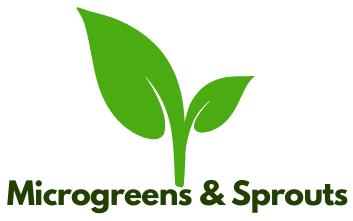Peas
Peas Seeds
Pea seeds used for sprouting are typically whole dried peas, often green or yellow varieties. When sprouted, they produce crisp, tender shoots that have a fresh, slightly sweet, and nutty flavor. Pea sprouts are popular in salads, sandwiches, and stir-fries.
History of the Seed
Peas (Pisum sativum) have been cultivated for thousands of years, with evidence dating back to ancient civilizations in the Mediterranean and Middle East. Traditionally grown as a food crop, peas have also been used for sprouting due to their high nutrient content and ease of growth.
Nutritional Information
Per 100 grams of fresh pea sprouts:
- Calories: 42 kcal
- Protein: 5 g
- Carbohydrates: 7 g
- Dietary Fiber: 3 g
- Fat: 0.4 g
- Vitamins: Rich in Vitamin C, Vitamin A, and some B vitamins
- Minerals: Good source of iron, potassium, and magnesium
Nutrition Benefits
- High in antioxidants and vitamins that support immune health
- Rich in plant-based protein
- Supports digestion due to fiber content
- Low in calories and fat, good for weight management
- Contains enzymes that aid nutrient absorption
Sprouting Process and Directions
Soak Time
Soak pea seeds in clean water for 8 to 12 hours.
Rinse Time
Rinse thoroughly with fresh water 2 to 3 times daily.
Growing Time
Sprouts take between 3 to 5 days to grow to edible size.
Harvest Time
Pea sprouts are ready to harvest when they are 1 to 2 inches long, usually around day 4 or 5.
Yield
From 1/4 cup of dried pea seeds, you can expect approximately 1 to 1.5 cups of fresh pea sprouts.
Days to Sprout
Pea seeds typically begin sprouting within 24 to 48 hours after soaking.
Best Growing Methods
- Use a sprouting jar or tray with good drainage.
- Keep the sprouts in indirect sunlight or low light conditions.
- Maintain temperature around 65°F to 75°F (18°C to 24°C).
- Ensure proper rinsing and drainage to prevent mold.
Storage
Store harvested pea sprouts in a sealed container in the refrigerator. Use within 3 to 5 days for optimal freshness.
Using the Ready Sprouts
- Add raw to salads and sandwiches for crunch and nutrition.
- Toss into stir-fries or soups towards the end of cooking.
- Blend into smoothies for extra vitamins and fiber.
Helpful Tips
- Use organic pea seeds specifically labeled for sprouting.
- Avoid overcrowding seeds during sprouting to allow air circulation.
- Always rinse sprouts well before consumption.
- If sprouts develop an off smell or slimy texture, discard them.
Did You Know
Pea sprouts contain more vitamin C than mature peas and are considered a superfood by many nutritionists due to their dense nutrient profile. They were used in traditional Chinese medicine for their perceived health benefits.
